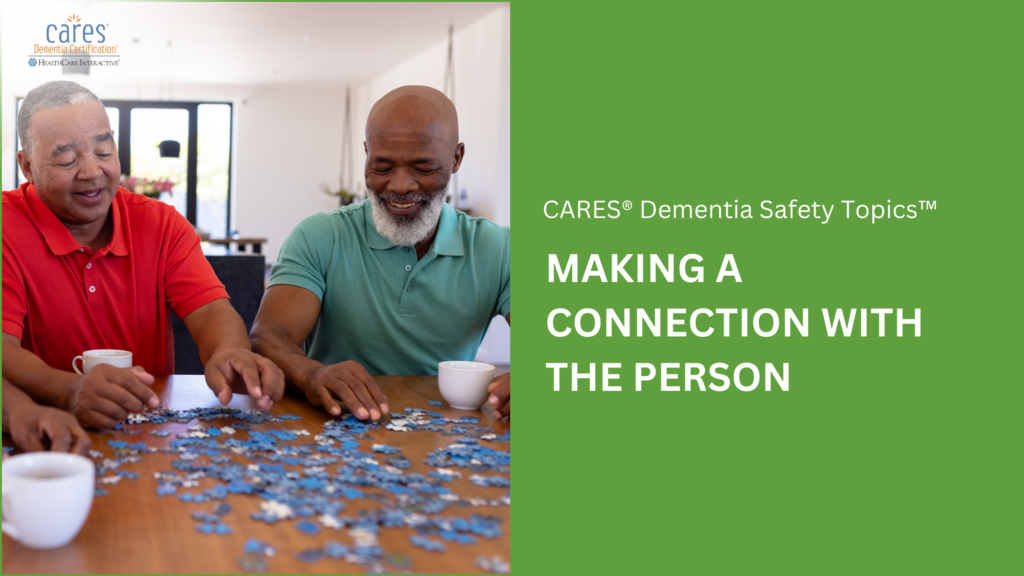What does it mean to “make a connection” with the people with dementia? It means that you have done something with or for them where they show signs of awareness, comfort, appreciation, or enjoyment. It means that you have found a way to reach them and to have a meaningful moment with them.
Let’s look at two examples of ways to approach a task like giving someone with dementia a shower. In the Common Approach example, Flo, a home health aide, uses a common, task-oriented approach to give Lee (a character with Alzheimer’s) a shower.
Example – 1
Getting ready for a shower may seem simple, but for someone with dementia, it can feel overwhelming. Getting ready for a shower may seem simple, but for someone with dementia, it can feel overwhelming. Caregiving for people with dementia requires patience, reassurance, and a calm approach.
• “Let’s get ready to take your shower, okay?” Towels and clothes are prepped, glasses are removed, and permission is asked before each step.
• But then, hesitation kicks in—“Oh, no. I don’t wanna get in the water.” Lee becomes uneasy, showing signs of discomfort.
Despite the gentle approach, there’s clear resistance. The process continues, but is she truly feeling comfortable and understood? This is where person-centered dementia care can make all the difference.
Example – 2
The difference in approach is clear. Instead of focusing on the shower, the caregiver engages Lee in a conversation about things she enjoys—her family, past events, and even a wedding. This shift keeps her mind occupied and eases her into the routine without resistance.
• The caregiver avoids mentioning the shower at first, instead chatting about a new car, family, and fun memories.
• When Lee starts feeling uneasy, the conversation smoothly redirects to more comforting topics like food, weather, and weekend plans.
By keeping the conversation natural and engaging, Lee stays relaxed and less resistant. Using dementia communication strategies makes everyday tasks smoother and more positive. The CARES approach for dementia focuses on improving communication with people suffering from dementia, helping them feel safe and understood.
Conclusion
Caring for someone with dementia isn’t just about getting things done—it’s about making them feel comfortable and understood. By shifting the focus from the task to the person, like chatting about family or favorite memories, caregivers can turn stressful moments into positive ones. The CARES approach for dementia shows that a little patience and good conversation can go a long way in reducing anxiety in people with dementia and making everyday care feel natural and easy. It’s not just about the shower—it’s about the connection.
Boost your caregiving skills with CARES® online training! Enjoy $25 off your purchase—just use code 2MYVB5 at checkout. Hurry, this special offer is valid until June 30, 2025. Invest in better care and make a difference for those living with dementia!

